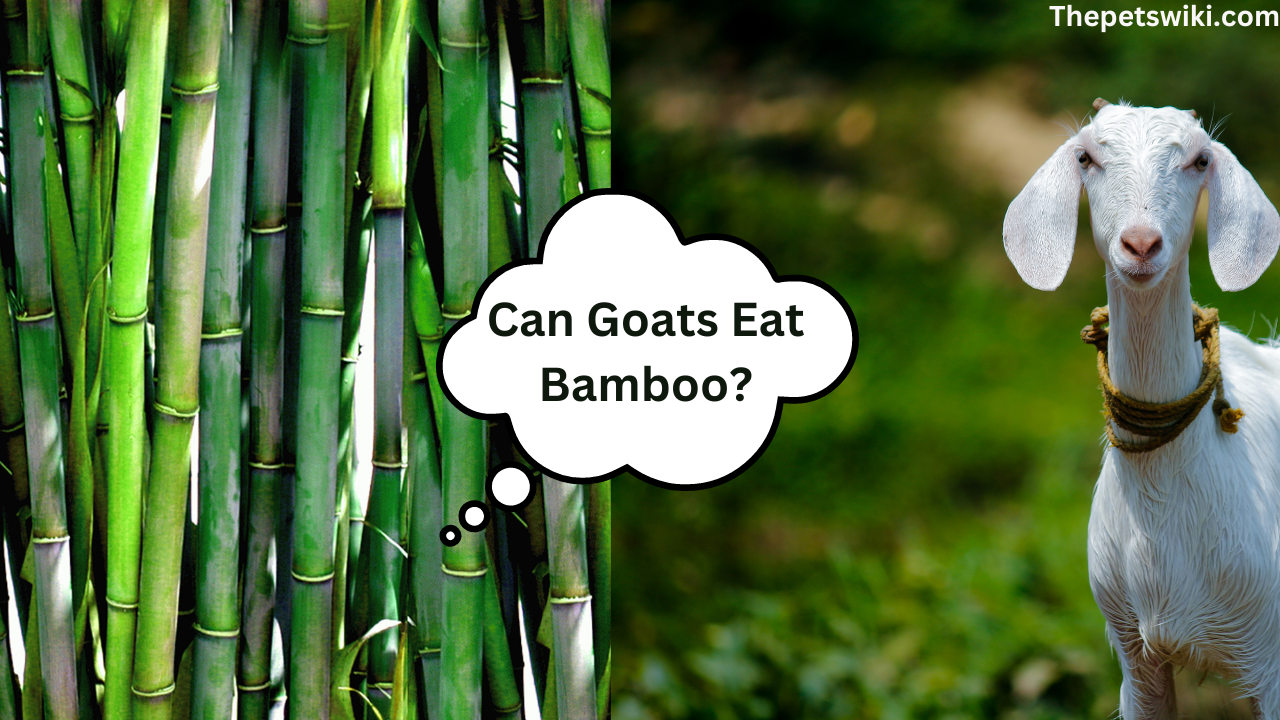Goats are known for their adventurous palate and ability to consume a wide variety of plants and vegetation. One question that often arises among goat owners is whether goats can eat bamboo. In this article, we’ll explore the suitability of bamboo as a dietary option for goats, its nutritional value, potential benefits and risks, and how to safely incorporate bamboo into a goat’s diet.
Is Bamboo Safe for Goats?
Introduction to Bamboo
Bamboo is a versatile plant that belongs to the grass family and is native to various regions around the world. It is known for its rapid growth and hardy nature, making it a popular choice for landscaping and as a source of food and materials in many cultures.
Suitability for Goats
While bamboo is not typically a staple food for goats, many goats can safely consume bamboo as part of their diet. However, it’s essential to consider several factors, including the type of bamboo, its age, and how it’s prepared before feeding it to goats. Also, check Can Goats Eat Potato Peels? All You Need To Know
Nutritional Value of Bamboo
Bamboo is low in calories but rich in fiber, which can aid in digestion and promote gastrointestinal health in goats. It also contains various vitamins and minerals, including potassium, manganese, and vitamin B6, which are essential for overall health and well-being.
Benefits of Feeding Bamboo to Goats
Dietary Variety
Incorporating bamboo into a goat’s diet can provide dietary variety and enrichment, which can help prevent boredom and encourage goats to forage and explore their environment.
Digestive Health
The high fiber content of bamboo can support healthy digestion in goats, preventing issues like bloating and constipation. Additionally, chewing on bamboo can help keep goats’ teeth healthy and worn down.
Sustainable Foraging
Bamboo is a renewable and sustainable resource that goats can forage for in their natural habitat, reducing the need for supplemental feed and promoting environmentally friendly farming practices.
Related Reading: Can Goats Eat Pineapple?
Risks of Feeding Bamboo to Goats
Cyanogenic Glycosides
Some species of bamboo contain cyanogenic glycosides, compounds that can release cyanide when ingested. While mature bamboo is generally safe for goats, young or newly sprouted bamboo shoots may contain higher levels of cyanogenic glycosides and should be fed to goats with caution.
Digestive Upset
Feeding goats large quantities of bamboo, especially if they are not accustomed to it, can cause digestive upset, including diarrhea and bloating. It’s essential to introduce bamboo gradually into a goat’s diet and monitor their response closely.
Plant Toxicity
While most species of bamboo are safe for goats to consume, some ornamental varieties may contain toxins or chemicals that can be harmful if ingested. It’s crucial to research the specific species of bamboo and ensure it is safe for goats before allowing them to eat it.
How to Safely Feed Bamboo to Goats
Selecting Suitable Bamboo
Choose mature bamboo plants that have been properly identified and are free from signs of disease or pest infestation. Avoid feeding goats bamboo that has been treated with pesticides or other chemicals.
Preparation and Processing
Before feeding bamboo to goats, remove any leaves, branches, or tough outer layers to make it easier for goats to chew and digest. Cut the bamboo into manageable pieces to prevent choking hazards and encourage proper chewing.
Monitoring and Observation
Introduce bamboo into a goat’s diet gradually, starting with small amounts and increasing the quantity over time. Monitor goats closely for any signs of digestive upset or adverse reactions, and discontinue feeding bamboo if any issues arise.
Conclusion
While bamboo can be a nutritious and enriching addition to a goat’s diet, it’s essential to consider the type of bamboo, its preparation, and potential risks before feeding it to goats. By selecting suitable bamboo, preparing it properly, and monitoring goats’ response, you can safely incorporate bamboo into their diet as a tasty and nutritious treat.


